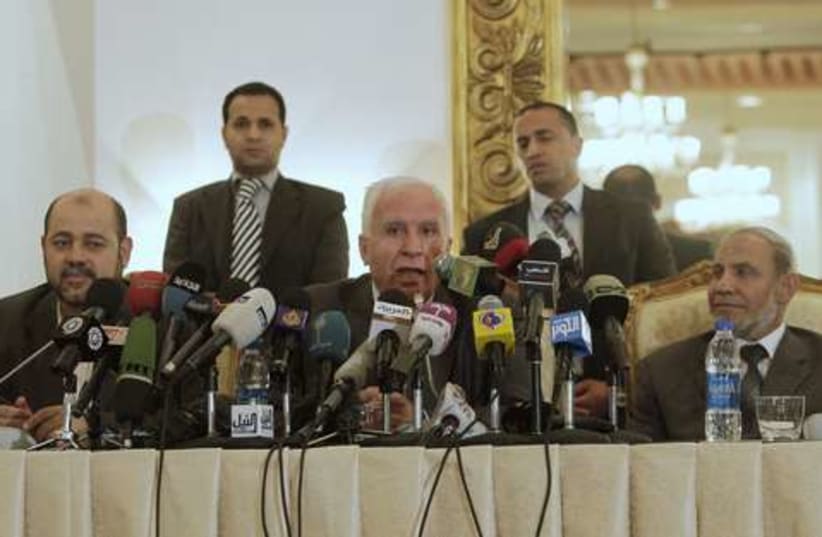Palestinian state: How to lose and still come out a winner
The Fatah-Hamas deal will never produce unity or two states, Israel and Palestine, living side by side in peace. What it actually embodies is one more not-so-stealthy attempt to wipe Israel off the face of the map.
